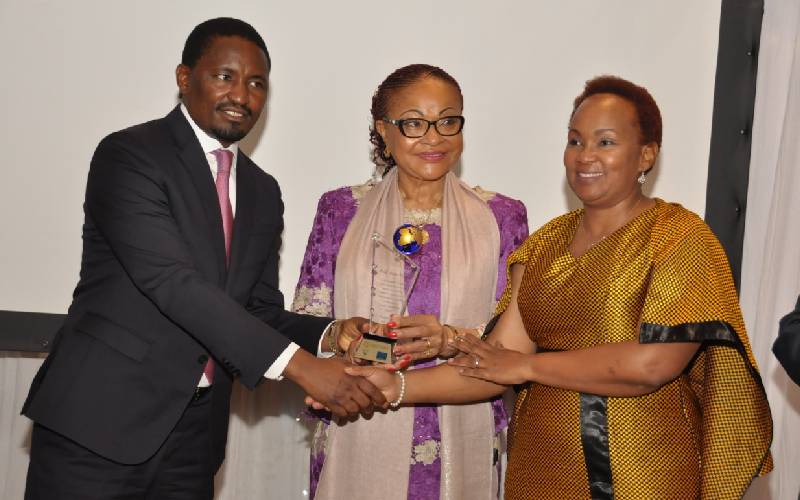×
The Standard e-Paper
Kenya’s Boldest Voice

Agriculture CS Mwangi Kiunjuri and AU commissioner for Rural Economy and Agriculture Amb Josefe Sacko present the ward to Prof Anne Muigai in Nairobi.
Jomo Kenyatta University of Agriculture and Technology's Professor Anne Muigai is amongst 15 Taxonomy Advisory Group experts recognized by the African Union.







